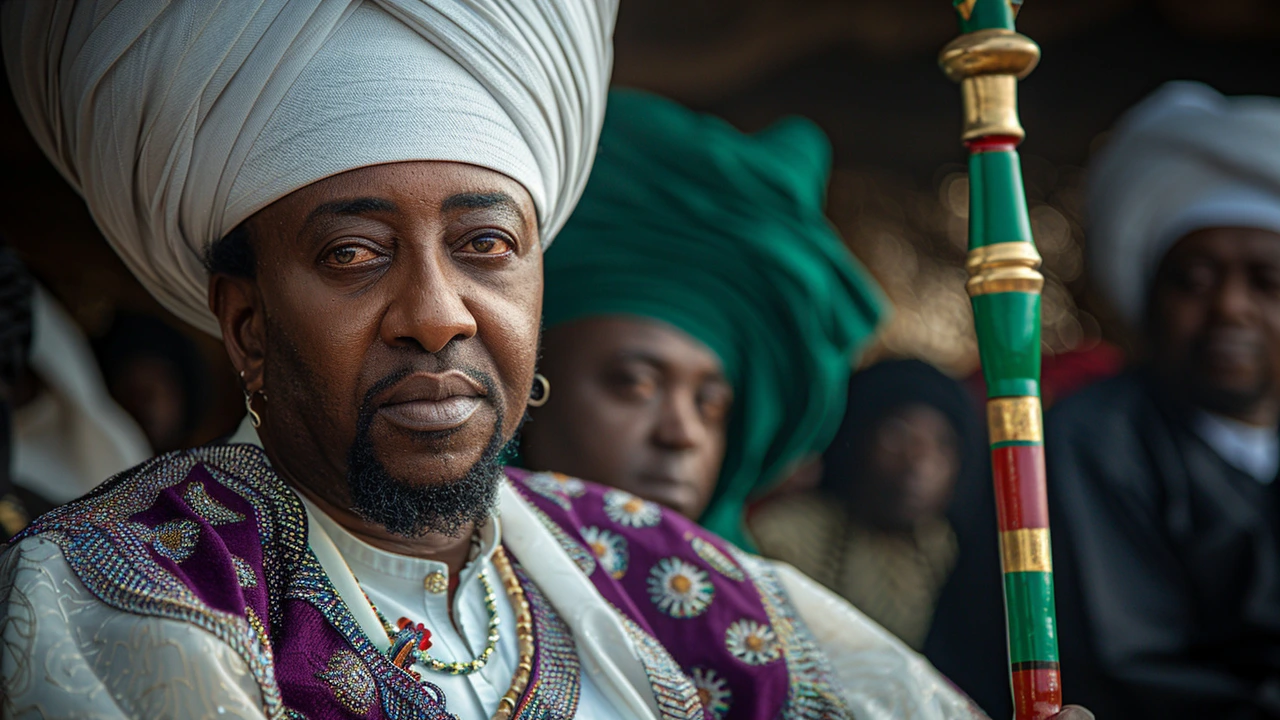Muhammadu Sanusi II: A Step Closer to Reinstatement as Emir of Kano
In a groundbreaking development, reports have emerged indicating that Muhammadu Sanusi II, who was dethroned five years ago, may soon find himself back on the throne as the Emir of Kano. The Kano State House of Assembly, in a legislative stride, passed a bill aimed at repealing the law that led to his dethronement and those of other emirs in 2019. This landmark decision moves the once-distinguished monarch a step closer to reclaiming his esteemed position, with the final hurdle being the signature of Governor Abba Kabir Yusuf.
The Political Background
The dethronement of Muhammadu Sanusi II in 2019 was part of a sweeping change initiated by the then-Governor, Abdullahi Ganduje. The Kano State Government under Ganduje's leadership divided the historic Kano Emirate, creating four new emirates. This move was widely perceived as an attempt to diminish the power and influence of the traditional Kano Emirate, a notion that sparked considerable controversy among various traditional and political groups.
The move, according to many political analysts, was a strategy by Ganduje to consolidate his power by weakening an institution that had historically wielded significant influence in the region. Sanusi, a former central bank governor, had been an outspoken critic of the government's policies, which may have further motivated his dethronement.
Reactions and Support for Sanusi II
Since his ousting, Muhammadu Sanusi II has garnered considerable support from different quarters. Advocacy groups such as the 'Yan Dangwalen Jihar Kano' have been vocal in their calls for his reinstatement. These groups argue that the dismantling of the Kano Emirate disrupted the cultural and traditional fabric of the state, and they have consistently lobbied for Sanusi’s return to his ancestral seat of power.
In the wake of this new legislative bill, several traditionalists and political observers have voiced their optimism about the potential restoration of Sanusi II. They see this move as a rectification of what they consider an unwarranted disruption of the centuries-old institution.
The Legislative Milestone
The bill passed by the Kano State House of Assembly to repeal the law that dethroned Sanusi and other emirs is seen as a significant milestone. Legislative experts note that this move represents a shift in the political dynamics within the state. They point out that while the law to dethrone Sanusi was passed swiftly in 2019, the decision to repeal it has followed a more deliberate and scrutinized legislative process.
Members of the assembly who supported the bill highlighted the importance of maintaining the integrity and continuity of traditional institutions. They argued that the creation of new emirates was a political maneuver that did not reflect the will or well-being of the Kano populace.
Awaiting the Governor's Decision
With the bill now awaiting the signature of Governor Abba Kabir Yusuf, the final decision rests in his hands. Speculation is rife about the governor’s stance on the matter. Some political insiders believe that Governor Yusuf is inclined to approve the bill, given that his administration has shown a willingness to address what many see as the previous administration's missteps.
However, the governor's ultimate decision is yet to be made public. If he endorses the bill, it will pave the way for Muhammadu Sanusi II to reclaim his throne, potentially restoring a sense of continuity and stability to the Kano Emirate.
Implications for Kano's Political Landscape
The potential reinstatement of Sanusi II could have far-reaching implications for Kano's political landscape. For one, it would mark a significant shift in the relationship between traditional institutions and the state government. Historically, the emirate has played a pivotal role in the socio-political sphere of the region, acting as a bridge between the people and the government.
Analysts suggest that Sanusi’s return could also influence upcoming elections and political alignments within the state. His reinstatement could bolster the credibility of Governor Yusuf’s administration among traditionalists and the populace who view the emirate as a symbol of cultural pride and heritage.
A Closer Look at Muhammadu Sanusi II
Muhammadu Sanusi II’s ousting in 2019 was a significant moment in Kano’s history. Before his enthronement, Sanusi served as the Governor of the Central Bank of Nigeria, where he earned a reputation for his reformist stance and vocal criticism of government policies. His tenure as Emir was marked by his advocacy for social reform, including education for women and actions against child marriage.
During his time as Emir, Sanusi did not shy away from criticizing both traditional practices and government policies that he viewed as detrimental to societal progress. This candidness earned him both admirers and detractors, setting the stage for his eventual dethronement.
After his removal, Sanusi continued to be an influential figure, engaging in intellectual and policy-driven dialogues at both national and international forums. His potential return to the throne raises questions about how he will navigate the relationship between the traditional emirate and the modern state apparatus.
Conclusion
As the Kano State awaits the governor’s decision, it is clear that the possible reinstatement of Muhammadu Sanusi II as Emir of Kano is more than a mere reversal of a political decision. It represents a broader narrative about the balance between tradition and modern governance, the influence of cultural institutions, and the evolving political landscape in Nigeria. All eyes will be on Kano as this significant chapter unfolds, promising to impact not just the state but the entire nation.

